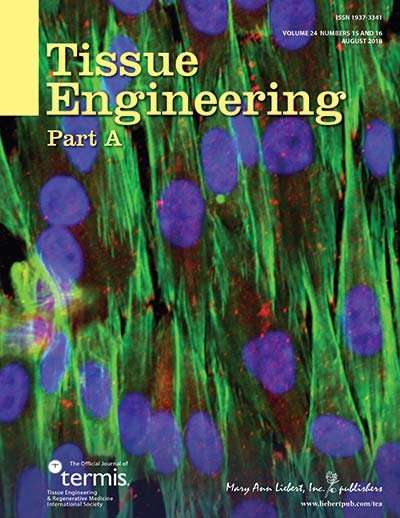Credit: Mary Ann Liebert, Inc., publishers
Platelet-rich plasma (PRP) is believed to provide pain relief and help improve joint function in degenerative joint disease, but a new study has shown that it does not act by promoting stem cell proliferation or enhance the cartilage formation capabilities of mesenchymal stem cells (MSCs). The effects of PRP treatment on cartilage formation and chondrogenesis in the presence of adult human MSCs derived from two different sources are reported in the study published in Tissue Engineering, Part A.
In the article entitled "Effect of Platelet-rich Plasma on Chondrogenesis of Adipose- and Bone Marrow-Derived Stem Cells," coauthors Jr-Jium Liou, Benjamin Rothrauff, Peter Alexander, and Rocky Tuan, University of Pittsburgh School of Medicine (PA), used MSCs derived from the fat pad of the knee and from the bone marrow. They showed that high concentrations of PRP treatment for long periods of time actually impaired cartilage formation, making it less likely for chondrocyte differentiation from the MSC to occur. This had important implications for the development of future strategies to repair cartilage damaged by injury or disease.
"This article presents a systematic study to elucidate the effects of PRP on the chondrogenic differentiation of adult human MSCs and its potential mechanism of action as a therapeutic adjunct for the treatment of joint diseases," says Tissue Engineering Co-Editor-in-Chief Antonios G. Mikos, Ph.D., Louis Calder Professor at Rice University, Houston, TX.
More information: Jr-Jiun Liou et al, Effect of Platelet-Rich Plasma on Chondrogenic Differentiation of Adipose- and Bone Marrow-Derived Mesenchymal Stem Cells, Tissue Engineering Part A (2018). DOI: 10.1089/ten.tea.2018.0065
Provided by Mary Ann Liebert, Inc























